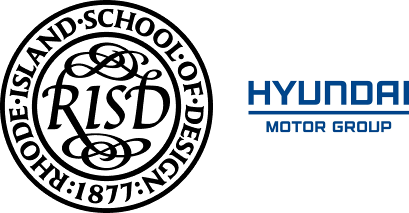20 Washington Place
Providence, Rhode Island 02903
United States
Hyundai Motor Group and Rhode Island School of Design have announced a research collaboration to examine relationships among natural and built environments in order to propose new directions for the future of mobility.
The study expands on the smart mobility vision announced by Hyundai at CES 2020, which aims to help vitalize human-centered future cities, focuses on three mobility solutions: Urban Air Mobility, Purpose Built Vehicle and Hub. The research with RISD will help infuse these solutions with insights from RISD’s pioneering faculty and students. Through RISD’s Research & Strategic Partnerships program, the partnership with Hyundai elevates expertise of faculty with the experimental creativity of students to conceive our future realities.
For the research, Hyundai established a task force, including designers from the Design Innovation Group, and RISD developed a new collaborative research platform created solely for Hyundai. Four faculty members leveraged their expertise to explore study areas supported by 16 students. The participant size was small, allowing for close collaboration, resulting in a distinctive study on the future of mobility.
Based on this vision, the study examined four distinctive areas of future mobility, including graphic design (Anastasiia Raina), industrial design (Paolo Cardini), sound design (Shawn Greenlee) and textile design (Anna Gitelson-Kahn).
The partnership kicked off with a workshop at RISD’s Edna W. Lawrence Nature Lab in February, with students and faculty who came together with a shared understanding that the real-world mobility challenges Hyundai faces present unique opportunities. Students from 10 departments were selected through a competitive pool of 108 applicants.
Hyundai and RISD will continue their partnership with a summer research program focusing on lightweight structures and hygiene, inspired by nature. The partners plan to deepen their collaboration and form a longer-term partnership, with RISD’s Nature Lab providing a foundation for living systems research.
“Hyundai Motor Group’s work with RISD is providing deep insights that will help us advance innovations in technology and design, paving the way for next-generation mobility solutions,” said Youngcho Chi, Hyundai Motor Group’s President and Chief Innovation Officer. “Through the collaboration, we’ve discovered that we have a similar vision for the future, and we’re able to develop a common language and working methods that will provide a solid foundation for a more fruitful collaboration going forward.”
“The post-COVID-19 era will require us to come up with new ways of thinking for our mobility ecosystem to evolve,” said SangYup Lee, Senior Vice President and Head of Hyundai Global Design Center. “By conducting in-depth studies with RISD about how nature copes with change, we expect to gain fresh inspiration that can lead to the development of sustainable processes, next-generation technologies and innovative designs for the future of mobility.”
“Our institutional vision—as set forth in RISD’s strategic plan, NEXT: RISD 2020-27—commits to contributing to new knowledge through innovative curricula and increasing our research capacity to support interdisciplinary inquiry and exchange,” said RISD President Rosanne Somerson. “This first-of-its-kind research collaborative between RISD and Hyundai brings this commitment to life. I am grateful that Hyundai provided this opportunity and has shown so much openness in embracing the role of artists and designers in contributing key insight to mobility research. The early outcomes of this partnership have activated new ideas about a just and climate-smart future.”
“RISD’s partnership with Hyundai opens an inspiring new chapter in the space of design, art and creation. Hyundai has a keen interest in the unknown—as does RISD— and we thank them very much for making this research possible,” notes RISD Provost Kent Kleinman. “The Edna W. Lawrence Nature Lab, one of RISD’s innovative centers for research and teaching, played a key role in almost all the students’ projects, demonstrating the blurring of boundaries between nature and artifice, and the profound lessons that natural systems offer to artists and designers. Here too, our partnership with Hyundai rests on common ground, on which we plan to build in the future.”
Contact: Jaime Marland, jmarland [at] risd.edu, T +1 401 427 6954

